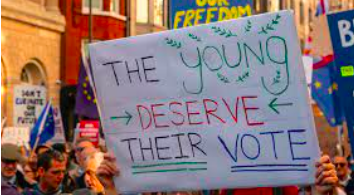Should the Rich Stand Against Climate Change?

Justification
Every day you are becoming more accustomed to the world of convenient transportation and advancing technology. During the winter, your home stays warm and your lights are most likely on after 6pm, as suggested by the spike in electricity usage around the evening. The majority of people just like you spend multiple hours per week in a moving vehicle that runs on gasoline, and if you happen to not to take part in the consumption of meat or animal products, you probably know someone who does. The problem with all of these things is that they contribute to climate change, one of today’s most prevailing issues. People like you and I are constantly pressured to make choices that will have as much of an impact as removing a single grain of sand from a beach. We’re taunted with nearly useless petition links on social media and paper straws, being led to believe that our decisions will have a larger impact. Can an end be put to climate change if you alone decide to go green and boycott certain products – or even lifestyles – that contribute to high carbon emissions?
Let’s be honest. You cannot single-handedly shut down every fossil fuel power plant and replace them with hydroelectric dams. Fossil fuels provide power to over 60% of the American power grid, and it contributes to climate change by producing high amounts of carbon dioxide that get trapped in the atmosphere. At this point in time, inventing the ergonomic, affordable solar-powered car is almost an unattainable dream, but a good goal to work towards if you think about becoming an inventor. Furthermore, you alone cannot slow the emissions of livestock in the US, whether you decide to go vegan or not. However, there are real people out there with large social media platforms, people with enormous amounts of funding, and people who can shift the trajectory of our planet’s future with just one signature. What’s stopping them from taking action?
The Carbon Footprint
The total amount of harmful greenhouse gasses produced by each person is referred to as our carbon footprint. Evidence shows that individuals with deep pockets and expensive lifestyles have the largest carbon footprint. As income increases, so too does one’s carbon emissions increase. Useless endeavors such as Jeff Bezos’s 11 minute ride to space in 2021 was responsible for 300 metric tons of carbon emissions, which is equivalent to a 750,000 mile car ride (or the circumference of the Earth about 30 times over). It’s said that the top twenty billionaires in the world are responsible for an annual average of 8,000 metric tons of greenhouse gas emissions per year compared to the average American’s annual emission of 8 metric tons. Much of the rich’s greenhouse gas emissions come from luxury superyachts and other various methods of transportation.
Everyone has a carbon footprint, but your responsibility to lessen your impact is based on the excess that you live in. Our society has normalized the idea that we should sustain ourselves, so of course the US has produced the most greenhouse gas emissions in history. What people still aren’t aware of is the impact that excessive lifestyles have on the rest of the world, and that’s just because we don’t see the damage done. This would include droughts, wildfires, the melting of the ice caps, and a decrease in the global food supply. The main reason why no action is being taken against climate change is because it’s a gargantuan issue that most don’t want to face, and that many benefit from by not addressing the issue. The rich are able to ignore the immoderate amount of gas emissions they are responsible for in addition to the resources they already waste; and large corporations with factories spread out across the world find that not having to change their source of cheap, non eco-friendly energy is an advantageous strategy to increase profit margins. This lifestyle comes at no extra cost to them, but it is a very high price to pay for the rest of the world and its future generations.
Sources
https://www.bloomberg.com/graphics/2022-wealth-carbon-emissions-inequality-powers-world-climate/
https://climatecommunication.yale.edu/visualizations-data/ycom-us/
https://www.cnn.com/2021/10/28/world/china-us-climate-cop26-intl-hnk/index.html
https://www.eia.gov/energyexplained/electricity/electricity-in-the-us.php
https://www.noaa.gov/education/resource-collections/climate/climate-change-impacts










